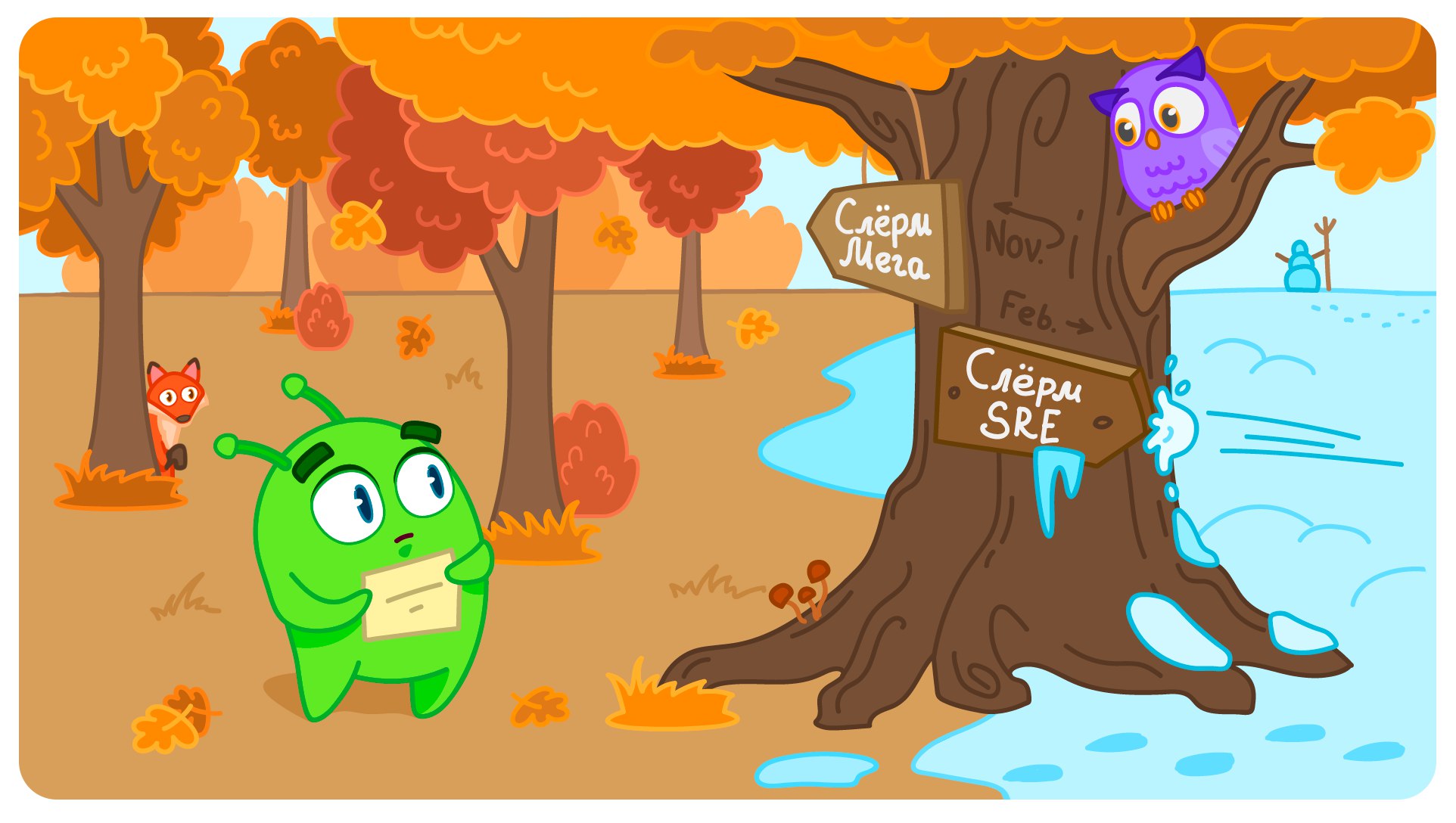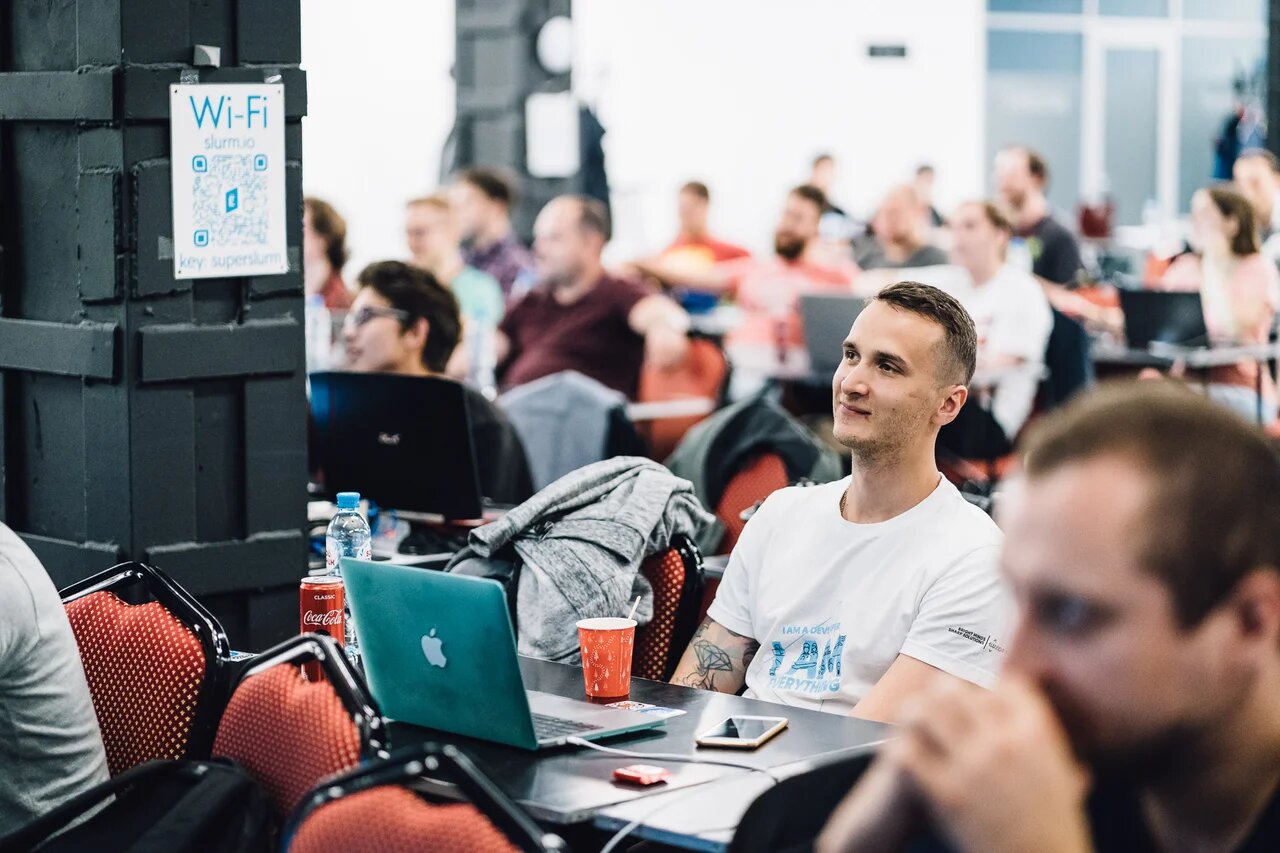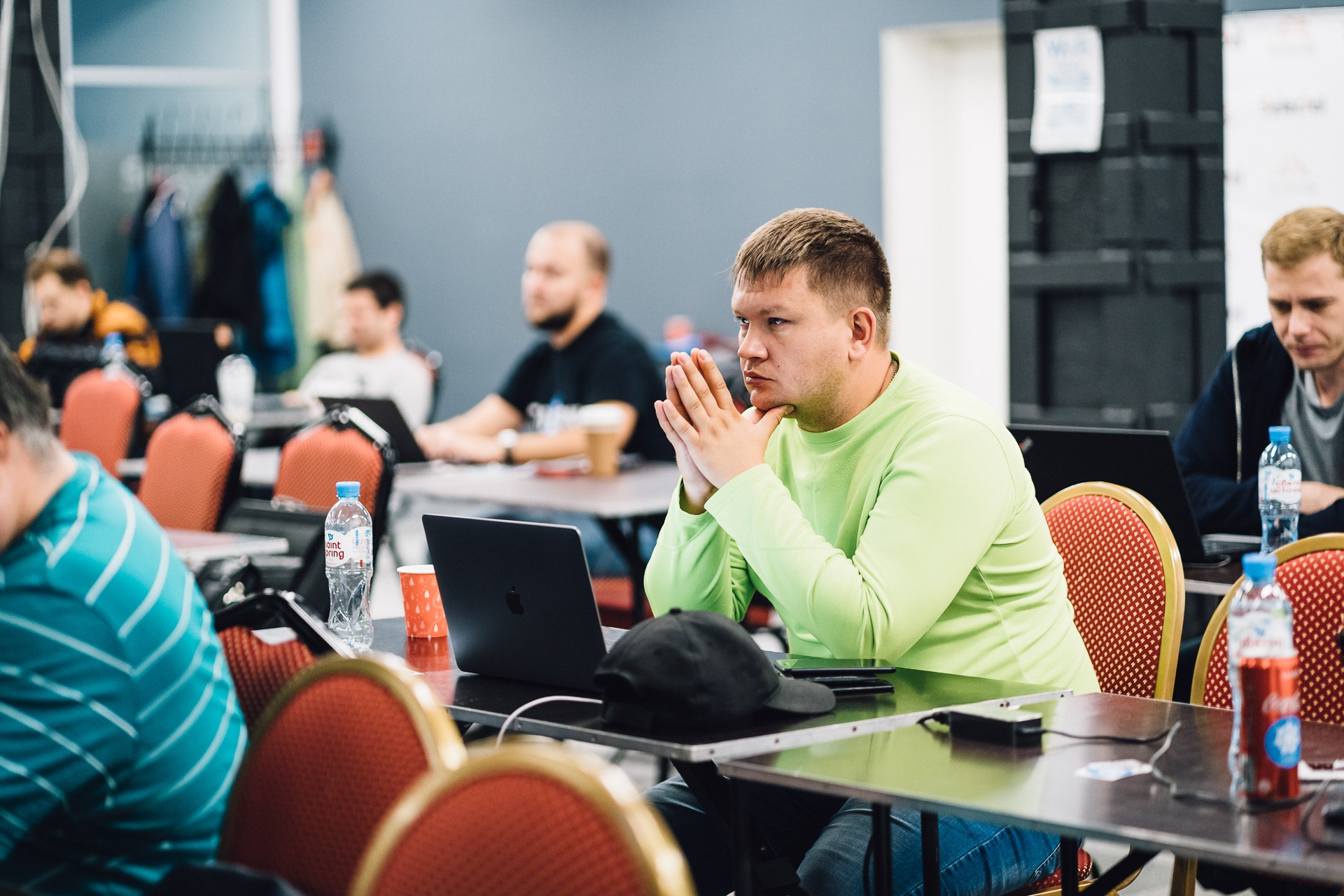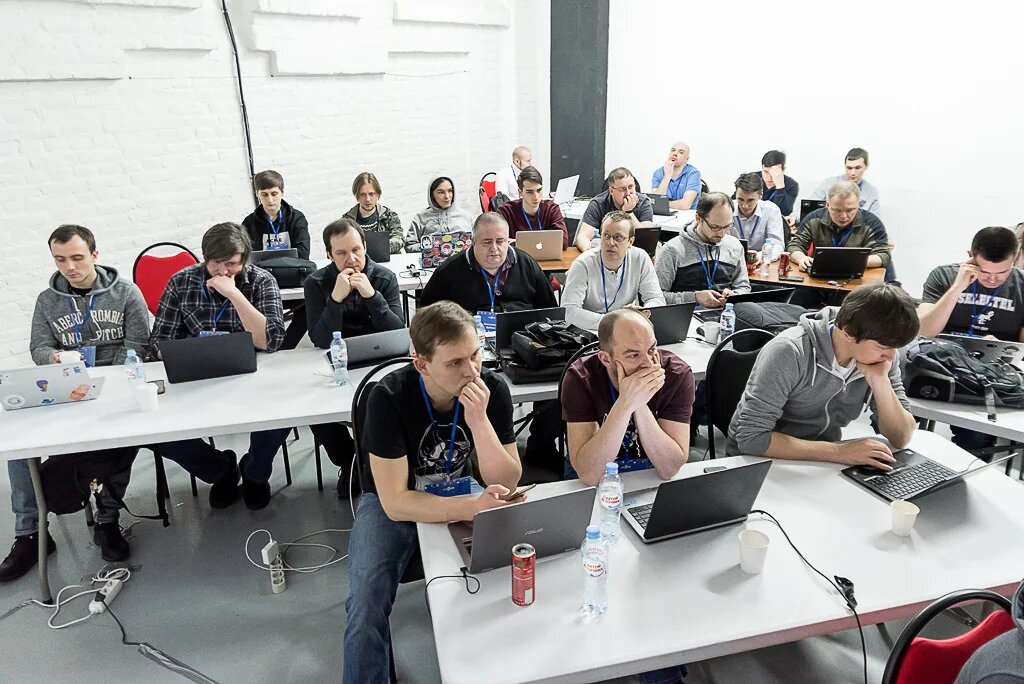Eichary is engaged in a quadrillion cases - search and onboarding of new employees, tests of the psychological state of personnel, regulations. It is difficult for them to figure out which profile courses the developer needs and which ones are not. And the hands do not always reach to evaluate which employees have already grown to the next step.
It is important for the manager that everything in the department is spinning, spinning, and stably produce results. And also KPIs are constantly hanging with the sword of Damocles. Therefore, the search for new technologies and courses goes to 5-10 place.
Why do we often expect that a training permit will be offered to us by HR or a manager? Steve Jobs said: “ Your time is limited. Therefore, do not waste it on living someone else's life. Do not fall into the trap of dogma, which teaches us to live in accordance with the thoughts of other people . "
Kubernetes is changing the life of the company. It is a fact.
And let's look from the other side. K8s changes first of all the life of the administrator himself. It makes it possible to earn more money, saves from many routine tasks, makes it freer and more meaningful as a professional, Kubernetes makes the work more interesting.

It became interesting to us how the professional and personal lives of the guys who went through the basic Slory have changed. To justify the time spent, we offered a discount on Slurm Mega - and asked the participants to give answers to a few short questions: what did they like about Slurm, what didn’t like, what would they like to improve.
Java Developer at Alfa Insurance

Yaroslav Ivchenkov right in the center with a slight smile listens to the lecturer.
My name is Yaroslav Ivchenkov. I work in Alfa Insurance as a Java developer.
I worked with Kubernetes before Slurm, but not in prod. Over the past few months, I have been actively studying it, picking the insides. Our company is now in the process of switching to Kubernetes - and some of the teams are slowly making attempts to climb into it. Now we generally have few people with good competence in K8s, so I, along with several other colleagues, are involved in setting up a cluster and promoting it in teams. On top of Kubernetes, we also roll istio. In order to increase my competence, they sent me from the company to Slerm.
First of all, Slurm was useful to me because the lecturers exponentially and at an affordable level explained many of the internal mechanisms of the Kubernetes cluster. It was important for me - and I'm glad that I received the necessary information. Thanks to her, I also began to better understand the settings of Istio, and this is very cool, since there is not much detailed information on it at the moment. Practical examples from the leaders were useful, we took them into account in our work.
From the fact that I didn’t really like it, sometimes some things were done from the category “here we have done a bunch of actions, repeat after us” without an explanatory explanation of why and how. Perhaps this is explained by the time limit or the motivation of the speakers that this is insignificant, but some of these points were not hooked. I already knew about many of them - and therefore my interest did not discourage me. But by the faces of many colleagues sitting next to me, I saw that they were doing all this "for show".
I want to get to Slurm Mega, as it is interesting to have a deeper immersion in the work and administration of the Kubernetes cluster. In particular, the operators are very interesting. I want to actively promote Kubernetes in our company.
Linux IT architect / administrator at AfterLogic

Denis Borisenko confidently occupied the center of photography.
My name is Denis Borisenko, AfterLogic. There I am an IT architect / linux administrator.
The initiative to visit Slerm was independent, not tied to the place of work. Since I like to pick new technologies.
Before Slurm, there were several attempts to deal with the topic, but to no avail - since it was necessary to let a huge amount of knowledge through yourself. After Slerm, he deployed the cluster to digitalocean and consolidated the knowledge gained. Currently, I am deploying a cluster on my hardware, recalling Sergey Bondarev, and developing a strategy for transferring infrastructure to k8s.
What did you really like? Slurm completely activated me. I liked the pace of the event. This turned out to be exactly the event that I needed - in just three days, I was able to systematize the knowledge that, if picked independently, would take several years. I found a strategy of what exactly needs to be done and where exactly to look. The event helps in a short time to get everything you need to dive in k8s. It seems to me that this is the main goal of the organizers, and they achieved it.
It was a special delight to discuss current problems with other members of Slurm on coffee breaks. Not a bit regretted that he participated in the event.
From the wishes ... I didn’t have enough practice where I could introduce something on my own, dig deeper. I would add another 4th day for practice, without scripts written in advance by the organizers. Well, in this vein, I would very much like to keep access to the test stands for a couple of weeks after the event. I had to re-deploy everything on digitalocean and pick it, so as not to forget. But this is my pain.
There was no superfluous knowledge on Slerme, every time I immerse myself more and more in k8s, one way or another I recall the words of lecturers, especially Pavel Selivanov, who were not quite clear on Slerme, but somehow crawled into memory. In general, I would like to highlight Paul’s professionalism and a very good manner of presenting complex material - and the answers to questions during coffee breaks.
At Slurm Mega, I want to get even more systematization of knowledge, to sort out my mistakes with lecturers and audience.
Release engineer at TK Center JSC

Mikhail Solodyagin modestly and imperceptibly, like a secret agent, got second on the left.
Hello everyone, my name is Mikhail Solodyagin. And I work in TK Center JSC as a release engineer.
Before Slurm, acquaintance with Kubernetes was extremely basic - for example, minikube on the local machine, a simple Halloween-Word application, ingress and all. Now Kubernetes has become much more in my life - starting from the normal cluster in production, ending with the construction of future projects tailored exclusively for the “cuber”.
I was in St. Petersburg Slerm in February and I can say that it is “intensive” as it is - the training program is very dense, but quite well structured. The most interesting and important thing that we managed to learn from the training is the Kubernetes internal device, which is hidden under its hood. This helps to avoid many “self-taught problems” when all knowledge of software is gathered from threads on StackOverflow, and there is no awareness of how all the individual components interact and work with each other. Not enough ... Probably enough, I would like only a little more best practice stories from Pavel Selivanov on the cuber - they were extremely entertaining.
Well, firstly, knowledge of the Kubernetes architecture, although simplistic, brings a lot of understanding of how to transfer existing software to it. Secondly, it’s very convenient, having training material in hand, to explain to a colleague on the project how a particular cluster component works, to show and tell, so that he understands precisely the reasons why such a solution is applied. And I didn’t take it as “I will enter this command / correct this config - it will become good simply because.” Well, of course, before Slerm, it was scary to touch something big and combat on it, now possessing a wealth of knowledge, confidence in managing clusters increased.
I want to go to Slurm, because those topics are revealed there that in the basic Slurm are not particularly affected due to the fact that this is the initial "intensive" - and they would simply not fit there. Most of all, of course, cluster security is of interest, in second place I would like more examples of creating fault-tolerant applications on it, more details on deployment strategies. Well and, of course, even more good tips and best practice from the speakers.
PS : An interesting and eventful winter is approaching in the wake of the intense-intensive autumn.
- Slurm Basic will be held in Moscow on November 18-20 - there are two places left.
- Slurm Mega will be held there on November 22-24 - we will analyze what k8s has under the hood.
- Slurm DevOps will be held January 30 - February 1 in Moscow.
- On February 3-5, there will be a separate “ SREM Slur - how to manage user happiness ” along with Ivan Kruglov, Principal developer at Booking.com (Netherlands), Ben Tyler, Principal Developer at Booking.com (USA), Eugene Varavva, Wide Profile Developer at Google (San Francisco).
- In addition, we are currently preparing an online Prometheus Slurm. Launch dates will be published on readiness.
Subscribe. Take part. It will be interesting.
Slurm is Coming!